Top Stories
Uganda’s Open Currency Policy and the Decline of the Shilling

In recent years, Uganda’s economy has grappled with a troubling trend, the persistent depreciation of the Ugandan shilling against major foreign currencies. As of mid-2025, one US dollar exchanges at over 3,500 shillings, a figure that continues to climb with little resistance.
This situation raises concern among economists, local business owners, and patriotic Ugandans who see a worrying lack of protection for Uganda’s monetary sovereignty.Unlike some nations that have enacted stringent laws to preserve the authority and utility of their domestic currency, Uganda operates a liberal foreign exchange system so open, in fact, that the use of foreign currencies such as the US dollar, Euro, and even the Kenyan shilling is increasingly prevalent in real estate, hospitality, tourism, and local trade. In parts of Kampala transactions payments are routinely priced and paid in dollars.
What does this mean for the Ugandan shilling, and by extension, for the country’s economic independence?“The more we accept to trade our local currency like a product like groundnuts sold in the market the more it loses value. When you treat the shilling like any ordinary commodity, you open the door to speculation, instability, and depreciation. Our currency is not a mere product to be haggled over or exchanged freely without control; it is the backbone of our economic sovereignty.”
Foreign exchange trading is not only legal in Uganda it is a booming business. On almost every major street in Kampala and other urban centers, licensed and unlicensed forex bureaus offer instant exchange services. While this supports tourism and international trade, it also opens the floodgates to currency speculation and dollar hoarding. The psychological impact is equally damaging. Ugandans are beginning to perceive the shilling as weak and unreliable, and this perception can quickly become reality.
When businesses start demanding dollars or euros, it sends a clear signal, the shilling is not good enough. This undermines trust in the local currency and fuels further depreciation.Looking at how other nations defend their currencies reveals a variety of approaches. In China, foreign currency use is tightly controlled, with the Chinese yuan as the only legal tender for domestic transactions.
Foreign currency transactions must be conducted through official channels under regulatory scrutiny, preserving the yuan’s central role. India also restricts foreign currency use; under the Foreign Exchange Management Act, the rupee is non-convertible for domestic transactions, and all foreign exchange must be declared and processed at registered institutions, ensuring control and confidence in the rupee. Tanzania, Uganda’s East African neighbours, requires government contracts and business transactions to use the Tanzanian shilling exclusively, helping prevent dollarization and protect its currency’s value.
Egypt provides an innovative example by introducing specialized ATM machines that facilitate foreign currency exchange in a controlled and transparent environment. Operated under the Central Bank of Egypt’s supervision, these machines ensure transactions follow official exchange rates and discourage informal trading. This technology-driven approach strengthens monetary policy enforcement and public confidence.
In stark contrast, Uganda has embraced a liberal foreign exchange system without robust safeguards. While openness can attract investment, the lack of controls undermines the government’s ability to defend the currency and manage monetary policy effectively. Enforcement by regulatory authorities remains weak, especially in sectors such as real estate, hotels, tourism, and import/export businesses. Consequently, landlords increasingly demand rent in US dollars. High-end stores and car dealerships price goods in foreign currency, even though many consumers earn their income in shillings.
These dynamic places pressure on local consumers and creates a dual economy that marginalizes the majority who rely on the local currency.Uganda must recalibrate its approach not by closing its economy to global trade or investment, but by asserting the primacy of its currency within its borders. The Bank of Uganda should enforce legal requirements mandating that all domestic transactions be priced and settled in shillings. Such a policy would signal renewed confidence in the UGX and initiate the long road toward restoring its value and stability and forex trading licenses must be reviewed and regulated more strictly to curb unregulated currency speculation.
For Uganda, a country with ambitious development goals and a youthful population eager to build its future, dependency on foreign currency for internal stability is unsustainable. Immediate, decisive action is necessary to reclaim monetary sovereignty, protect the shilling’s value, and secure the nation’s economic independence.
Story By Wabusimba Amiri is a communication specialist, diplomatic Scholar, Journalist, political analyst and Human Right activist. Tel: +56775103895 email: [email protected]
Top Stories
Police fire teargas and water cannon at protesters in Kenya as thousands take to the streets
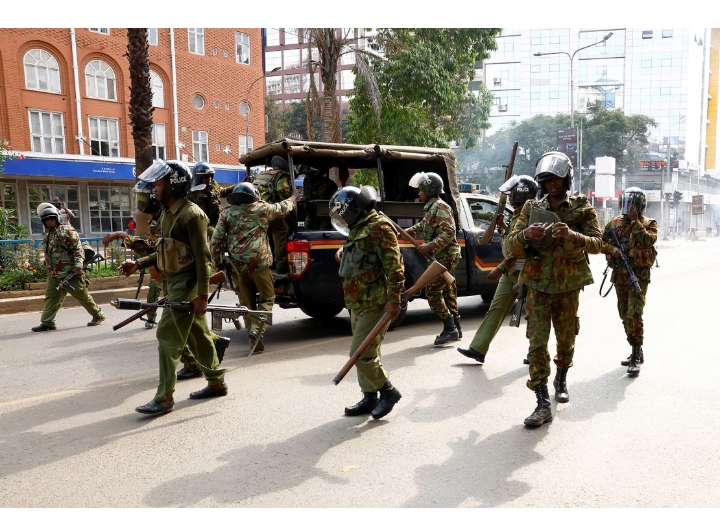
Police dispersed peaceful protesters in Kenya’s capital of Nairobi on Wednesday. Festo Lang/CNNNairobi, KenyaCNN —
Kenyan police have fired teargas and water cannon to disperse protesters as thousands took to the streets to mark the one-year anniversary of anti-government demonstrations that left dozens dead.
The government regulator, the Communications Authority of Kenya, has ordered all television and radio stations in the country to stop broadcasting live coverage of protests of the youth-led march, which began Wednesday.
The government agency falsely claimed that live coverage of the demonstrations violated Kenyan laws, while threatening regulatory action for non-compliance with the directive. Many of the stations did not immediately cease broadcasting, including CNN affiliate Citizen TV.
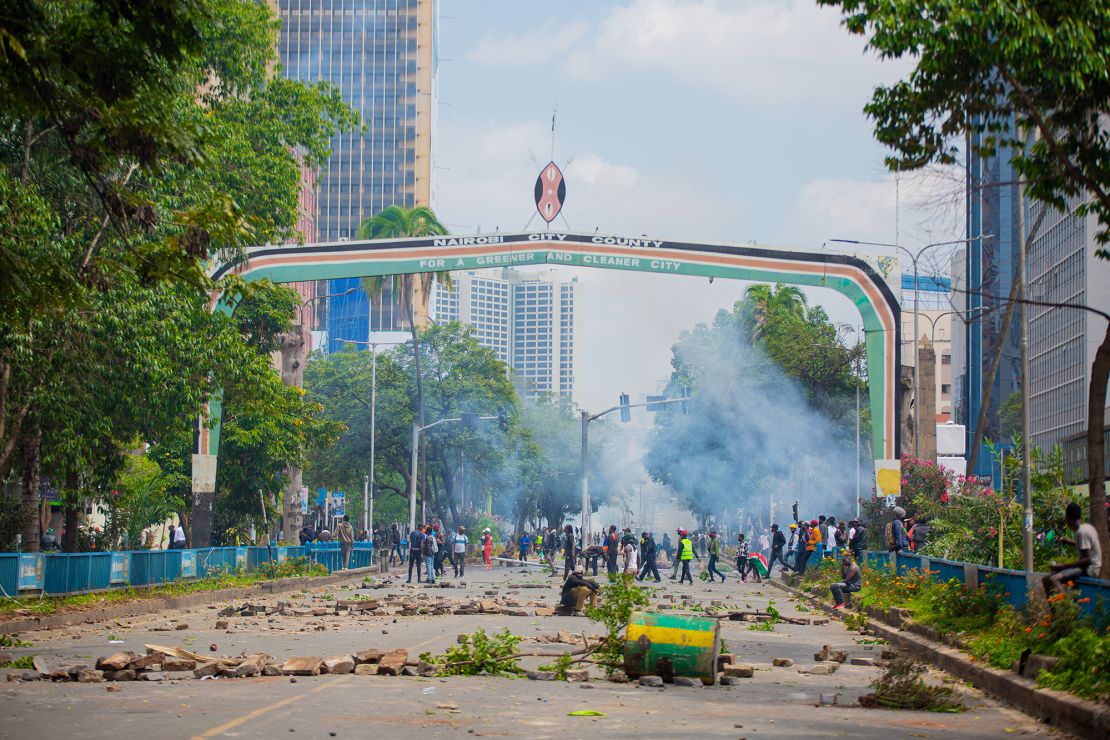
Thousands of people took to Kenya’s streets in protest on June 25, such as in the capital city.
Thousands of people demonstrated in the capital, Nairobi, the coastal city of Mombasa, and other towns to mark the protest anniversary.
In Nairobi, roads leading to the Kenyan Parliament building and the president’s office were barricaded ahead of the demonstrations.
Last June, many were killed by security forces outside Parliament, drawing nationwide outrage.
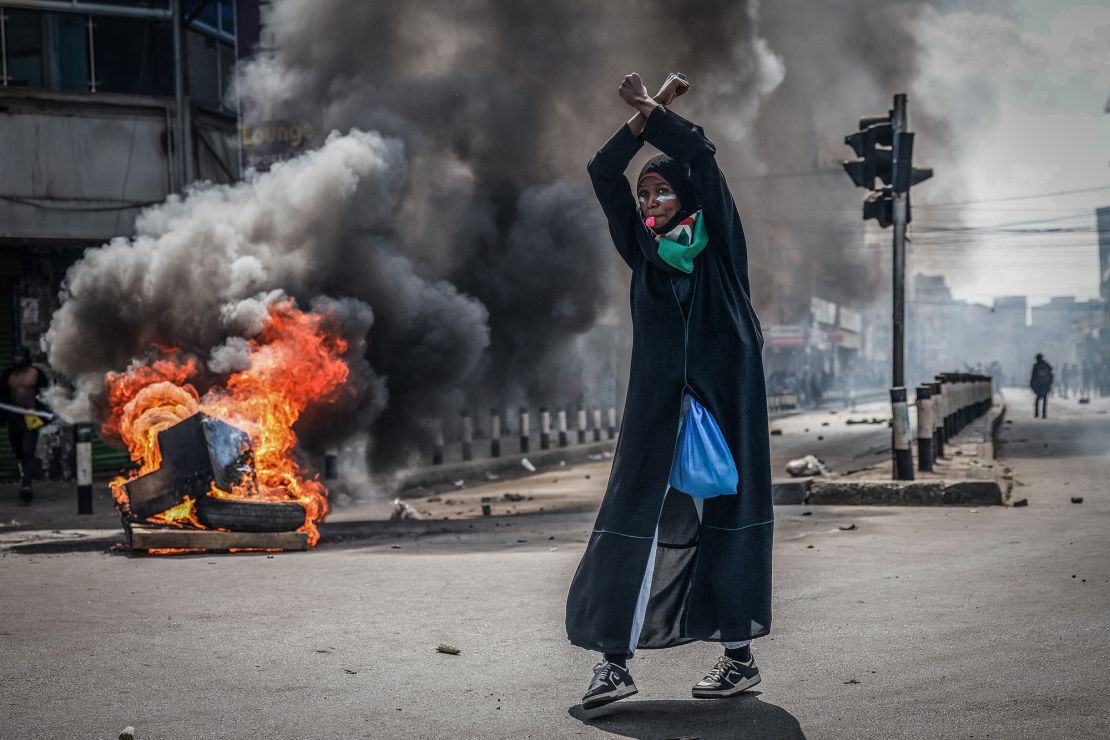
A protester reacts in front of a burning barricade in downtown Nairobi on Wednesday. Luis Tato/AFP/Getty Images
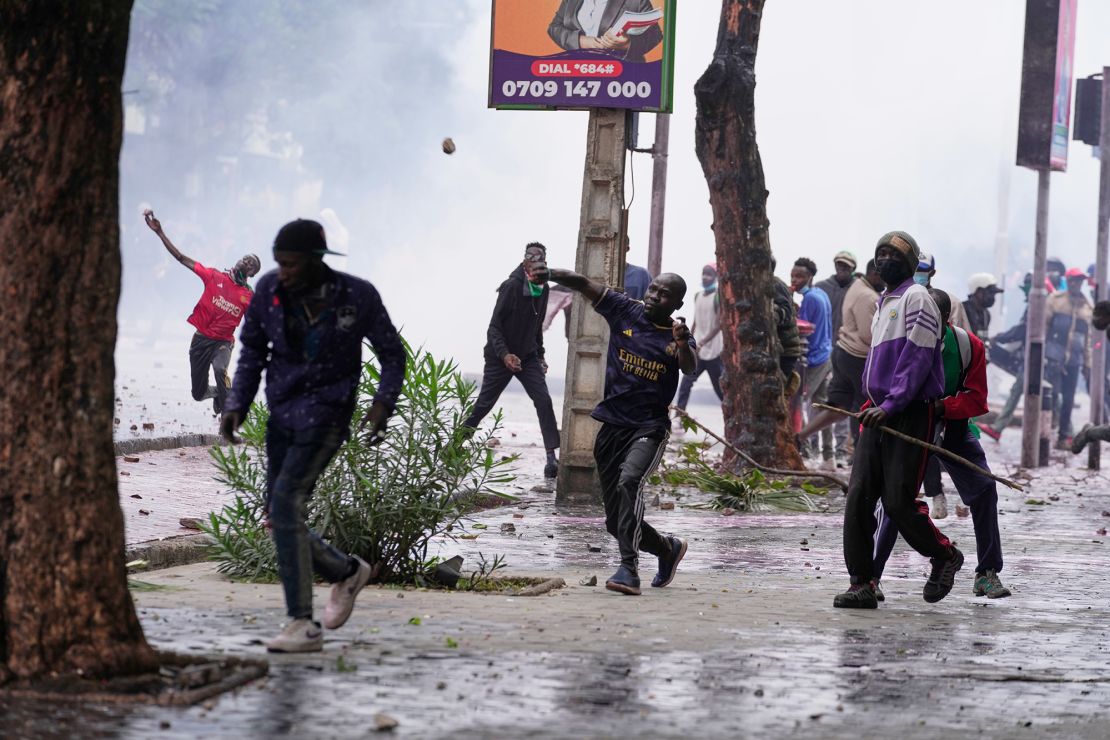
People protested on the one-year anniversary of deadly anti-tax demonstrations. Brian Inganga/AP
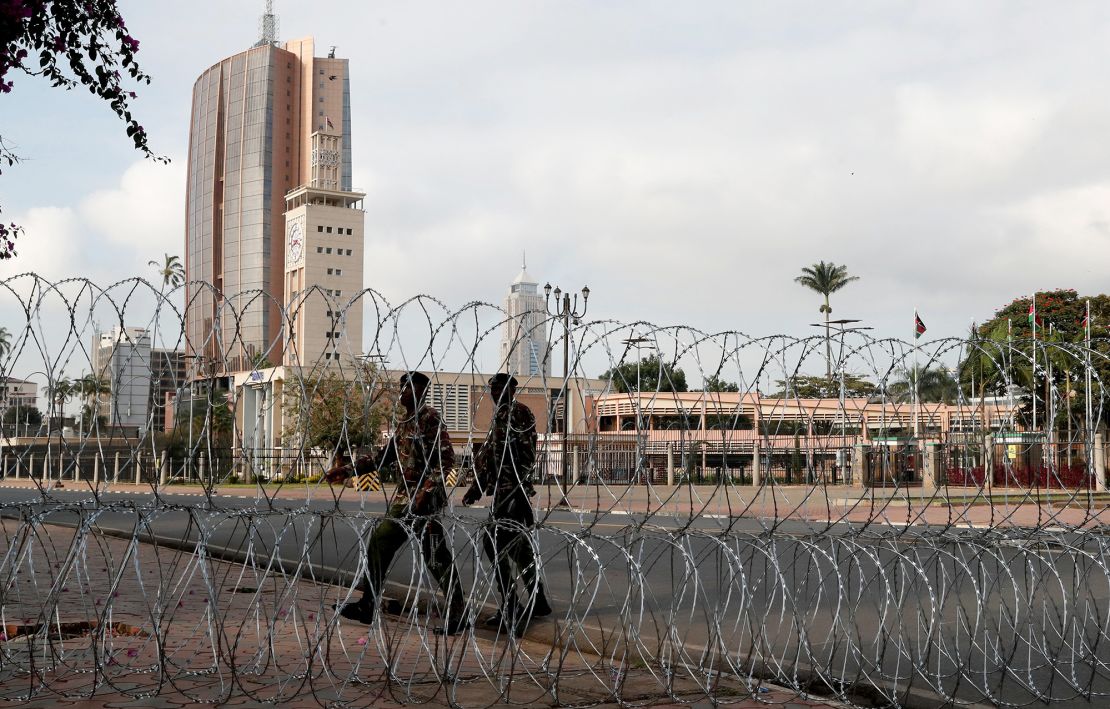
Security officers gather near a razor wire fence erected to block access to the Parliament buildings. Thomas Mukoya/Reuters
The demonstrations in 2024 forced the withdrawal of a controversial finance bill that raised taxes
However, many of Kenya’s youth are still enraged over several cases of alleged police brutality, including the death of a teacher in police custody and the shooting of an unarmed street vendor.
CNN witnessed police shooting live rounds in Nairobi to disperse peaceful protesters on Wednesday. Several of the demonstrators showed spent cartridges.
Demonstrators were also repelled with teargas and water cannon trucks in the capital – reminiscent of last year’s dramatic scenes.
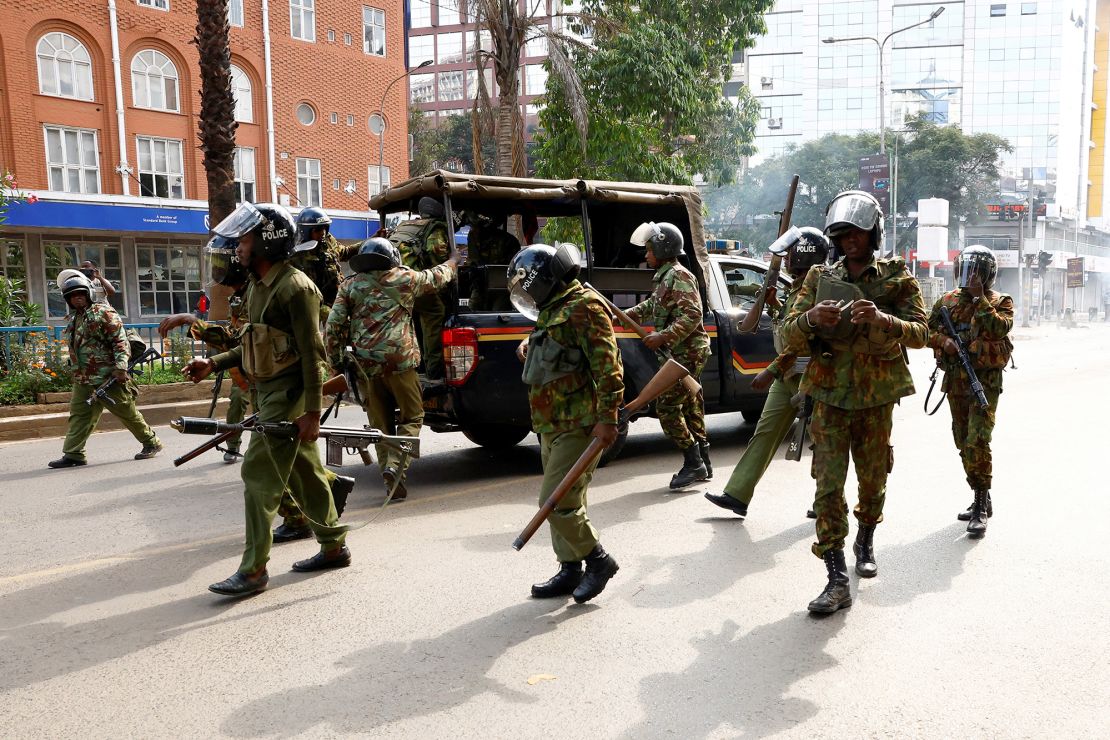
Police officers during demonstrations in Kenya’s capital on June 25. Thomas Mukoya/Reuters
Citizen TV posted a video on X showing injured individuals being wheeled into a Nairobi hospital.
In Mombasa, some protesters were arrested and hauled into police trucks, another video showed.
One person is reported to have been killed during demonstrations in eastern Kenya’s Machakos County on Wednesday morning, according to Citizen TV.
-
Top Stories2 days ago
Just in: PLU leaning to NRM, Withdraws From Party Primaries With 22 days Remaining to Elections.
-
Top Stories5 days ago
Suspected female suicide bomber killed in Kalerwe
-
Top Stories5 days ago
NUP Clears Kyeyune Pafuladiito For Mubende District Chairperson Race.
-
Top Stories5 days ago
NUP Goes For Buwekula South MP Seat Blesses Edward Ssempira.
-
Top Stories2 days ago
Museveni Approves Flyover Along Kampala-Jinja Highway to Protect Mbalala Industrial Park Workers
-
Top Stories3 days ago
Dr. Ssemugenyi petitions Constitutional Court over UPDF Amendment Act
-
Top Stories1 day ago
Police fire teargas and water cannon at protesters in Kenya as thousands take to the streets
-
Top Stories1 day ago
Iranian president announces “end of the 12-day war”

















